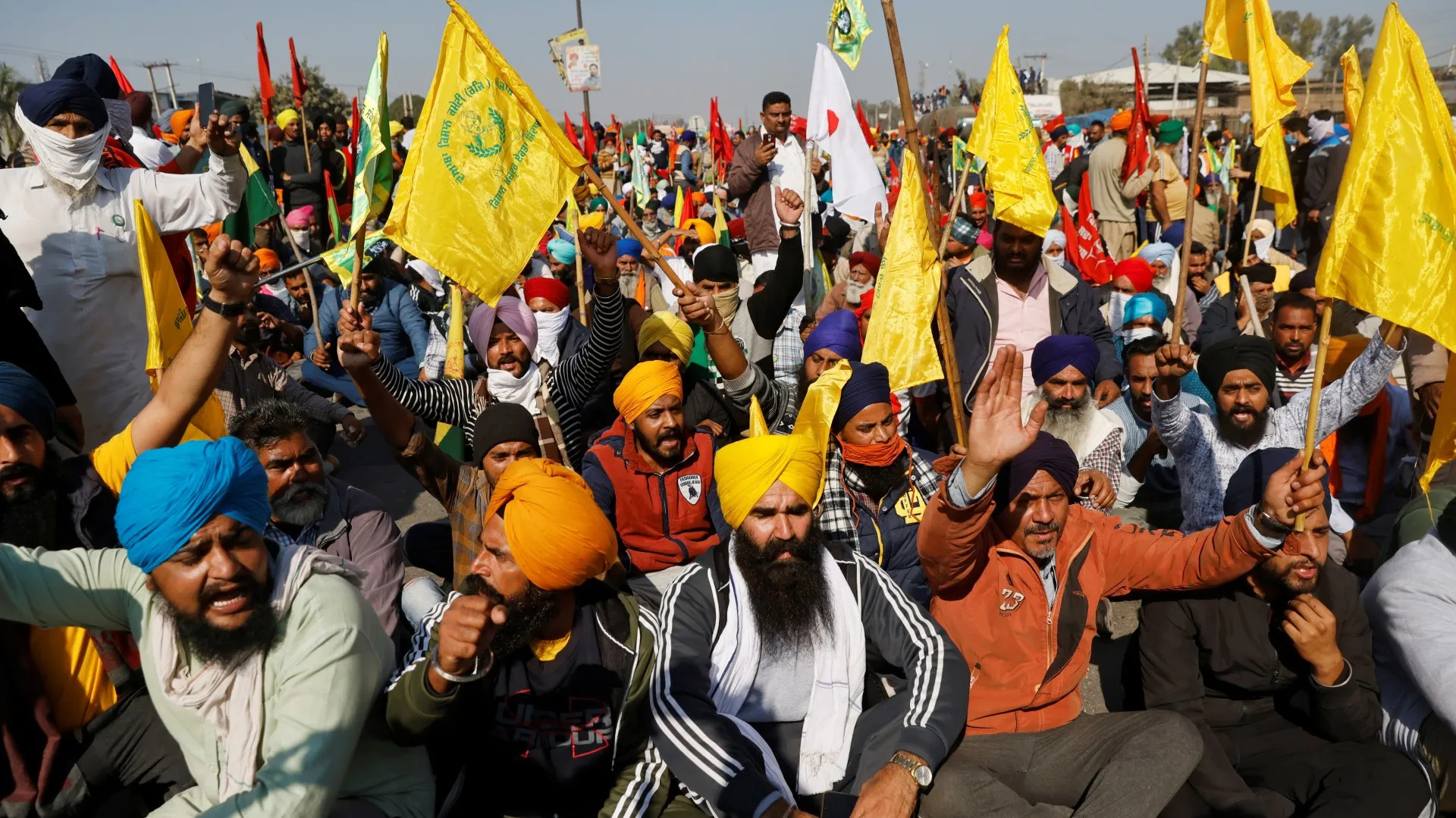India's Farm Laws Spark Nationwide Uproar as Farmers Protest for Their Livelihoods
Politics Politics of IndiaPosted by NewAdmin on 2025-02-03 09:09:25 |
Share: Facebook | Twitter | Whatsapp | Linkedin Visits: 27

India’s new farm laws have ignited a wave of nationwide protests, particularly in the states of Punjab, Haryana, and Uttar Pradesh, leaving the Indian government under intense pressure to resolve the issue. Passed in September 2020, these laws aim to introduce significant changes to the agricultural sector by deregulating agricultural markets. The government claims that the laws are designed to modernize farming, allowing farmers more freedom in the marketplace. However, the controversial nature of the laws has led to widespread opposition, with farmers fearing that the new regulations will leave them vulnerable to exploitation by large corporations, eroding their livelihoods.
The three laws at the heart of the protests are the Farmers' Produce Trade and Commerce (Promotion and Facilitation) Act, the Farmers (Empowerment and Protection) Agreement on Price Assurance and Farm Services Act, and the Essential Commodities (Amendment) Act. The first law allows farmers to sell their produce outside government-controlled Agricultural Produce Market Committees (APMCs), which are designed to ensure fair pricing and market regulation. The second law enables contract farming, allowing farmers to enter agreements with private companies to sell their produce at pre-determined prices, and the third law removes restrictions on the storage and movement of essential goods like food grains.
While the government has argued that the reforms will help farmers by providing them with more market options, critics contend that the laws pave the way for privatization and commercialization of agriculture, leading to further exploitation of farmers. One of the key concerns is that farmers will be forced to sell their crops to large corporate entities at lower prices, which will ultimately harm their incomes. Many fear that the removal of the minimum support price (MSP) system, which guarantees a fixed price for certain crops, will push them into a vulnerable position where they cannot sustain themselves financially.
The protests have been particularly intense in Punjab and Haryana, where farmers have long been dependent on the MSP system. Thousands of farmers have camped at various border points of Delhi, demanding the immediate repeal of the laws. The protests have evolved into a major political movement, attracting widespread support from opposition parties and civil society organizations. The ongoing standoff has disrupted transportation networks and escalated tensions with the police, who have resorted to using tear gas and water cannons to disperse the crowds.
Farmers' unions, which have led the protests, argue that the government has failed to consult them before passing these laws, and that the laws represent an assault on their rights. The unions also argue that these laws will lead to the dismantling of the APMC system, which has been a key mechanism for ensuring fair prices for farmers. Many farmers in rural India rely on these markets to sell their crops, and they fear that without the protection of government-regulated markets, they will be at the mercy of private companies.
The government has attempted to ease tensions by offering to suspend the laws for up to 18 months and form a committee to review the concerns raised by farmers. However, farmers have rejected these offers, insisting that the laws be repealed outright. The refusal to back down has only escalated the situation, and the protests have continued for months, attracting international attention and raising questions about the future of India’s agricultural policies.
The political and economic implications of the ongoing protests are significant. The farmers’ struggle has become a focal point for broader concerns about India’s agricultural policies and the state of rural development. Agriculture remains the backbone of India’s economy, providing employment for around 60% of the country’s population. Despite its importance, the agricultural sector has long been plagued by issues such as low productivity, inadequate infrastructure, and limited access to markets. While the government’s stated aim is to address these issues through reforms, critics argue that the new laws do not sufficiently address the root causes of these challenges.
As the protests show no signs of abating, the Indian government faces a difficult challenge in balancing the need for agricultural reform with the concerns of the country’s farmers. The situation underscores the need for a more inclusive and consultative approach to policymaking, one that takes into account the needs and interests of all stakeholders. Without a clear resolution, the protests are likely to continue, further intensifying the political and social divide between the government and the farming community.
Search
Categories
Recent News
- Rajasthan's Ram Katha U-Turn: Teachers Recalled from Religious Event
- Earth's Atmosphere: A Cosmic Balancing Act
- Indian Shooting Triumphs: Rana's Bronze and Team Silver
- Andhra Pradesh MLA's Unique Scooter Inspection Tour
- Air India's Fuel Switch Woes: A Troubling Pattern
- Mamata Banerjee's Supreme Court Showdown: A Battle for Democracy
- AP EAPCET 2026: Unlocking Andhra Pradesh's Engineering Aspirations
- Fatal Leap: Man's Tragic Encounter with Overhead Wires
Popular News
- Navigating IPO Market Dynamics Amid Volatility and Regulatory Changes
- Massive Worldwide Microsoft Outage Disrupts Multiple Sectors
- Panjapur Bus Stand to Reshape TNSTC Routes
- తెలుగుదేశం పార్టీ - పేదరికాన్ని నిర్మూలించడంలో వాగ్దానం
- Universities Embrace Remote Learning Technologies Amidst Ongoing Pandemic